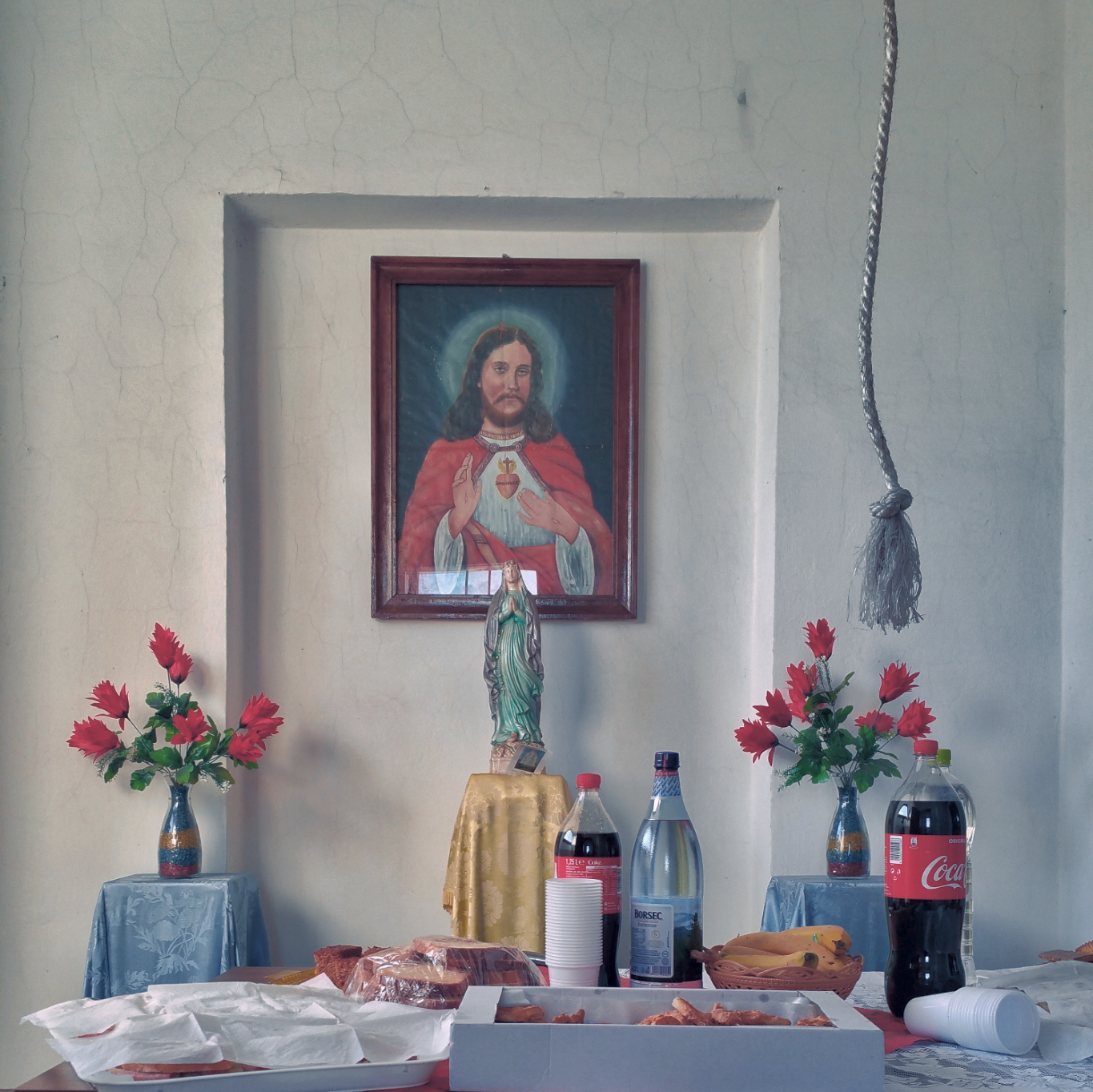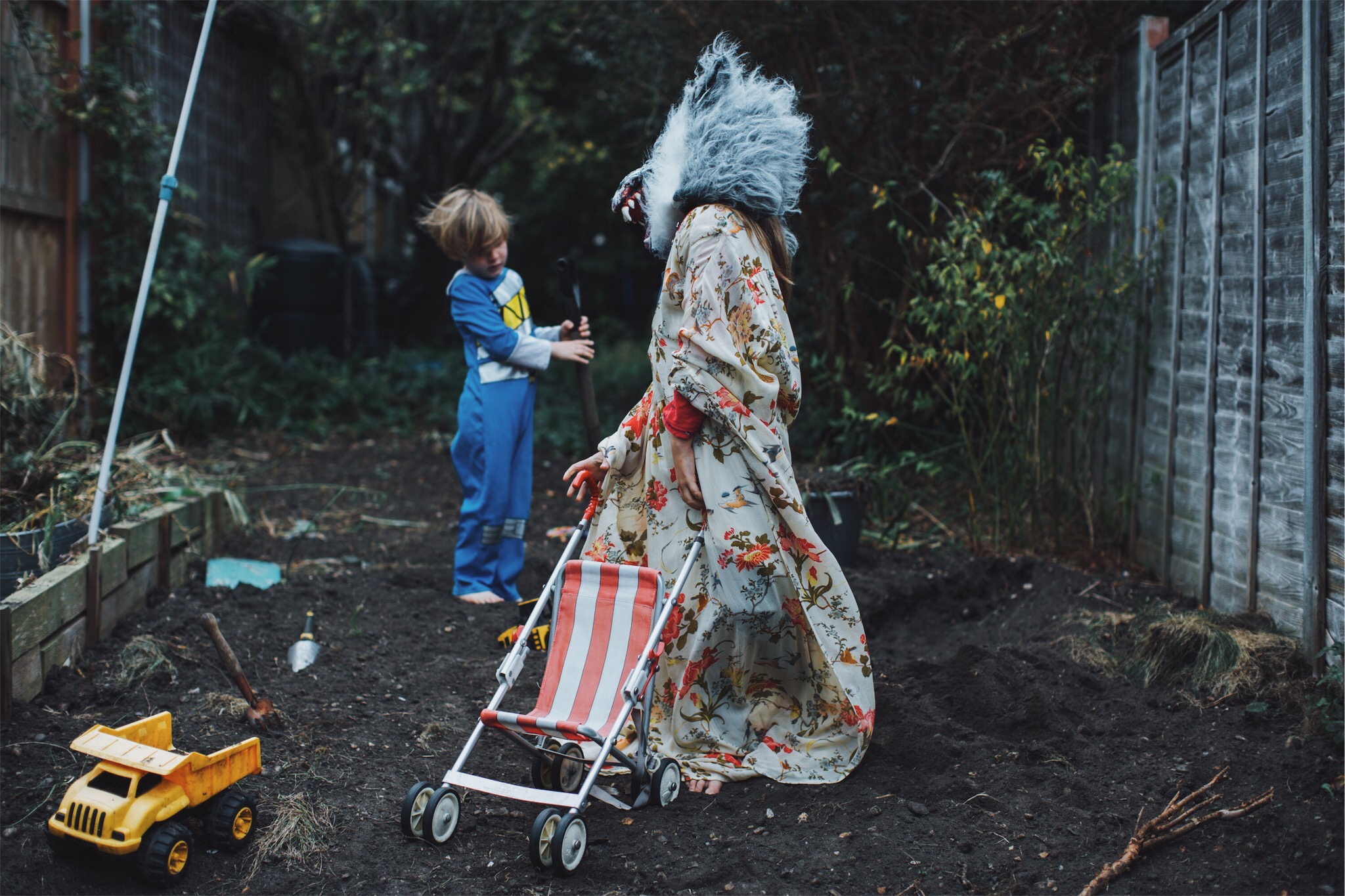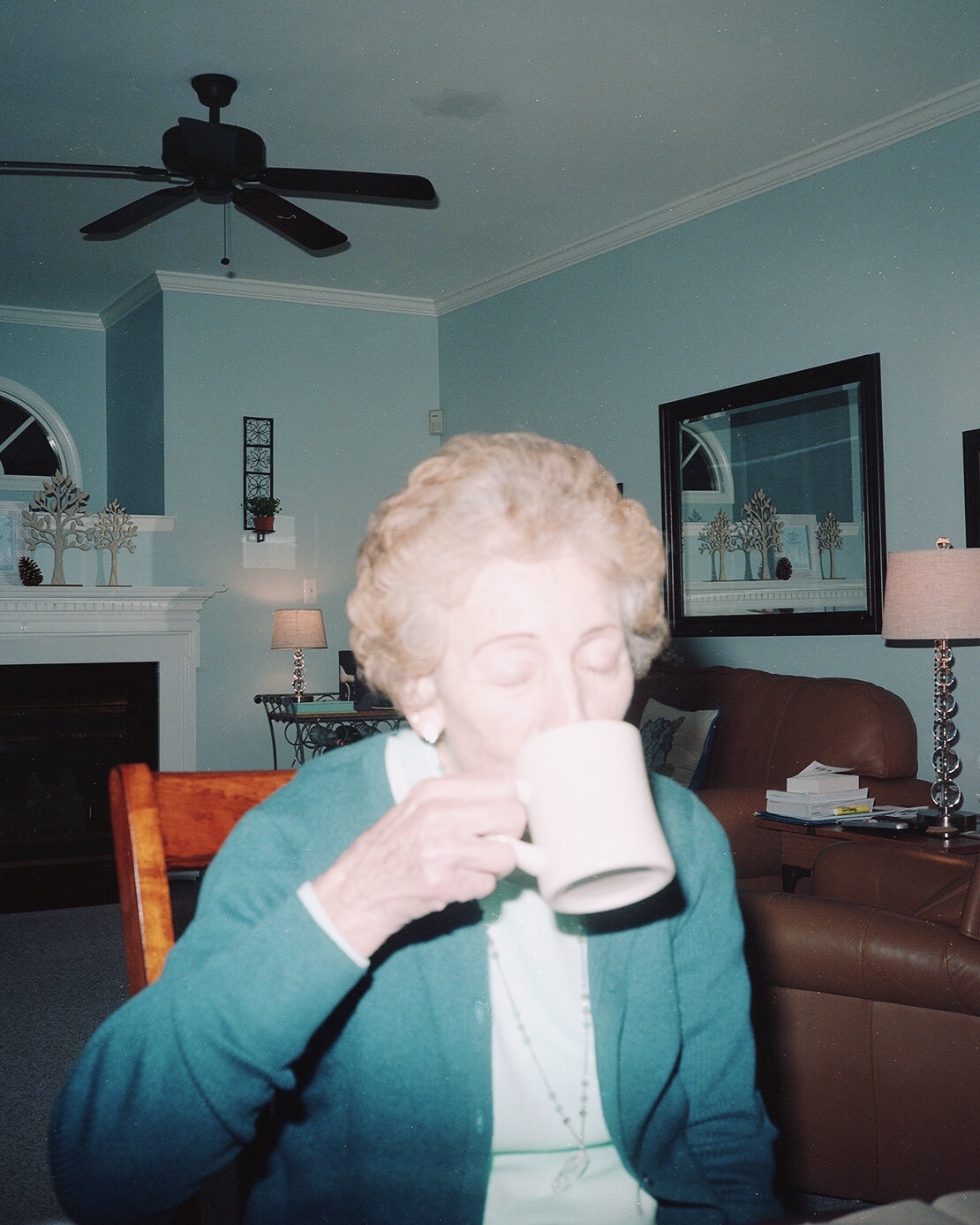When you have the opportunity to ask some of the most interesting people in the world about their lives, sometimes the most fascinating answers come from the simplest questions. The Thrive Questionnaire is an ongoing series that gives an intimate look inside the lives of some of the world’s most successful people.
Today’s socially-connected society often tries to sell us the idea that value is measured through likes and comments. But Greg Lutze has found success in promoting the absolute opposite. From the moment Lutze and his co-founder created VSCO, a photo-editing and sharing app, numbers were never top of mind. In fact, they completely dismissed the idea that self-expression should be tied to popularity metrics. “Every decision we’ve made has been with the end goal of helping people fall in love with their own creativity,” he tells Thrive. Not only has that mindset paid off (VSCO is now a multi-million dollar company), it’s become contagious. Instagram recently announced its decision to hide likes from its platform. Lutze believes this is the direction his industry must be headed in. “If social networks don’t change their policies, we will see irreversible damage to the mental health of this generation,” he says.
In his Thrive Questionnaire, Lutze reveals the surprising way he practices mindfulness, and shares the VSCO images that bring him calm.
Thrive Global: What gives you energy?
Greg Lutze: By nature, I’m an introvert. I’d be completely happy alone with a good book. Even so, it’s people that give me energy. Whether it’s the kindness of a stranger on the BART train, to photographer Joel Meyerowitz’s passion for his craft after 55 years, to Jonathan Van Ness’ enthusiastic care for others, people inspire me and give me energy.
TG: What’s your secret life hack?
GL: Listen to people. Listen with the intent to understand, to learn, to help. If you want to become a better listener, the best place to start is not talking.
TG: When was the last time you felt burned out and why?
GL: A couple years ago, I felt an incredible burden to make VSCO become a bazillion dollar company. That’s what entrepreneurs are supposed to do, right? We had raised a lot of money, and the expectation to scale VSCO was massive. I was crumbling under that weight – it really started to wear on me, affecting me mentally and physically.
I saw the documentary on Mr. Rogers, Won’t You Be My Neighbor?, and realized there is a difference between a job and a purpose. Building VSCO into a successful company is my job, but it’s not my purpose. Like Mr. Rogers, now I believe my purpose is to love people, or as another way to say it, to help others win. I can go to work each day and try to create a good environment for our employees – a place where they can learn and grow their careers. I can help people who use VSCO create something they love by providing them the tools, education, and platform to express themselves. This mindset change has helped me by removing much of the pressure, putting my focus on others, and not solely on me or some monetary version of success.
TG: When was the last time you felt you failed and how did you overcome it?
GL: Any time I compare myself to someone else, I feel like a failure. But that’s not healthy, nor is it the truth. Comparison culture is a disease and it shows up in subtle ways. Comparing myself to others only feeds into insecurity and being discontented with my life. I’m perfectly imperfect, and that’s good.
TG: What’s a surprising way you practice mindfulness?
GL: Making perfume while listening to music helps me practice mindfulness. It’s very relaxing and therapeutic. In some ways, it’s almost like time-traveling within your memories. The other day, I added some neroli to a formula I was working on, and I was instantly transported to my grandma’s house in Florida in the eighties.
TG: What brings you optimism?
GL: Around 75 percent of the people on VSCO are under the age of 25, and I get the opportunity to talk to them often. I am constantly surprised by their outlook on life and desire for positive social change – particularly around respecting people and caring for the environment. It’s easy to discount teenagers and their perspective on life, but really, there is so much to learn from them. The kids are alright!
TG: Tell us about a small change you have made in your life to improve the way you connect with others. What did you do, how long did it take until it became effective, and how you sustain this habit?
GL: So much of our personal and work life revolves around emails, DMs, and Slack. This is a direct method, but not always effective. I’ve found that actual, in-real-life conversations not only can communicate a message, but also establish a better connection. Of course, I still do a million DMs in a given day, but I’m intentional about talking to people in the hallway, or grabbing coffee.
TG: Before co-founding VSCO, you worked as a Creative Director for various agencies. How did you handle your career shift? Did entrepreneurship come naturally to you?
GL: There was nothing glamorous about starting VSCO. Both Joel (my Co-Founder) and I worked other jobs for a year while working on VSCO. I think we had around 10 employees until we stopped our other jobs.
I’m supposed to say I always knew I was an entrepreneur, and that VSCO would be successful, but the truth of the matter is, I really had no clue what I was doing, nor did I know if VSCO would be successful. It’s just something I knew Joel and I were passionate about and needed to do, and we were willing to work hard for it.
TG: Share your 3 favorite images from the platform that bring you calm.
GL:

by Raimondo

by Dollyandfife

by scottcsoke
TG: What is your key piece of advice for aspiring creators?
GL: When I was a little kid, my mother gave me a coloring book and told me, “Everyone will tell you to color within the lines, but it’s ok to color outside of the lines if you want.” To this day, it’s the best creative advice I’ve ever received.
In our current landscape of social media, there is so much pressure to create things people will like. We start making things we hope other people will like, instead of what we like, as if just one more like will validate us as a good creator. We tell ourselves we must follow the trends, or “color inside the lines.”
When you follow that path, you start making things that look like everybody else, and it’s not true to who you are. I love our latest VSCO campaign, entitled, “Make it Anyway.” Instead of getting caught up in all the doubt or worrying about what other people will think of us, just go and make it.
TG: In 2018, you launched VSCO Voices, a grant that supports creators of all kinds. What inspired you to create this program?
GL: VSCO Voices is one of the projects I’m most proud of at VSCO. Life is better when we celebrate unique people and perspectives, and VSCO Voices’ aim is to give a platform to people who use their self-expression to empower marginalized communities.
TG: Younger generations are becoming more and more tech-obsessed. Do you feel like there is a need to disconnect?
GL: From what I’ve seen, it’s less about being tech-obsessed and more about wanting to be connected and validated by others. This is at the very core of humans – we want to love and be loved, to know and be known. A mobile phone is just another channel to do this. That being said, we’ve seen the desire from Generation Z to move beyond the confines of a digital social network. In-person human connection is powerful and special. This is why we continue to invest in physical events that are all about community and creativity.
TG: You have said that life is all about perspective. How so?
GL: When I was a kid, my grandma used to send me a box we called “Trash or Treasure.” It was filled with random, useless junk she was going to throw away. But as a kid, it was a treasure to get a box in the mail filled with old toys and postcards. To her, it was junk. To us kids, it was pure gold. It’s all about perspective. William Eggleston, the photographer, was a master at this – he observed the boring everyday corners of life that most people ignored, and presented them as beautiful. It’s all about perspective – how we choose to see the world and our place in it.
TG: On VSCO, comments and likes are nonexistent. Tell us about this anti-social sharing approach.
GL: We’ve been intentional about creating an environment that allows people to freely express themselves. We never bought into the idea that self-expression should be tied to “social” behavior, or popularity metrics. We wanted VSCO to be more like a museum or a gallery. Imagine how weird it would be if you walked into the Louvre and put gold stars or thumbs up stickers next to a piece of work? What if there was a scoreboard of how many people liked the Mona Lisa? It would just cheapen the experience and take the focus off the artwork.
We’ve heard time and time again from the VSCO community that VSCO is the only place they can be themselves and not fear being judged. We want people to just go out and create, without worrying if other people will like it!
TG: Do you feel a responsibility to combat “social fatigue?”
GL: I’m not sure it’s so much a fight against “social fatigue,” inasmuch as it’s allowing people the freedom to be true to who they are, and create and share what interests them. And this could look a lot of different ways. For some, VSCO is a place to document what their life really looks like, even the boring moments. For others, it serves as a behind the scenes look at the professional work they are doing. For others, it’s a place to creatively experiment and test out different aesthetics and subject matter. There’s freedom to play and explore, without worrying if you have the right hashtags on your image to garner you more views.
TG: How did your app find its identity in the highly saturated world of social? Was it a challenge?
GL: We started VSCO to advocate for creators because we felt nobody else was really doing that. Everything we do, every decision we’ve made, has been with the end goal of helping people fall in love with their own creativity. I think that has always set us apart, and what resonates with those that use VSCO.
TG: What off-screen activities help you thrive?
GL: I love exercising. Six times a week, I get up at 5:30am and lift weights, bike, or run. I’m currently doing a program called “Warrior Shred” by Kinobody. It helps clear my head and gives me the energy and confidence to face the day.
Spending time with my wife and three kids also keeps me grounded by reminding me what’s really important.
TG: What is your advice for someone struggling with social pressure?
GL: Creativity is a great outlet for social pressure – the problem is when we assign value to a person, based on what they create. We’ve heard from our community that all forms of creativity – whether it is editing a photo, creating music, or painting – can be positive ways for them to process their emotions. They’ve also shared that the process of creating can be like therapy – it can help you take a step back, understand what you’re feeling or going through, and gain a new perspective that allows you to move forward in a positive way.
TG: Creators use your app to visually express the world around them. Even the worst of news, such as terrorist attacks, unfolds on VSCO. Does this surprise you?
GL: The world isn’t always beautiful flowers, sunsets, and incredible latte art. Sometimes it encompasses very difficult, tragic events as well. So much of self-expression is about processing and coming to terms with life around us. The documentation of life, with all its ups and downs, is a natural and important human response.
TG: Your app encourages people to search for meaning beyond the numbers. How do you define value?
GL: Meaning will never be found in how many people follow you, or how many people comment on your post. It might make you happy for a minute or two, but it won’t last. Seeking validation by the amount of people who view your content will only lead to insecurity.
On VSCO, I hope people find value just in the act of creating itself. It’s an amazing thing to express yourself, and there is value in doing that regardless of your social influence. One of my favorite things to do on VSCO is to look through my profile at the things I’ve posted throughout the years. It’s a reminder of all the people, places, and things, good and bad, that I’ve often forgotten about. It is a reminder to be grateful for the life I’ve lived, because it’s what I’ve found to be interesting, not what I hope other people find interesting.
TG: With Instagram changing their policies, the conversation surrounding “likes” is relevant now more than ever. Do you feel this is the direction all platforms should be headed in?
GL: Absolutely. I believe if social networks don’t change their policies, we will see irreversible damage to the mental health of this generation. Likes and follower counts operate like drugs – people become addicted to the rush that they bring, but downward spiral if they don’t get that hit. At VSCO, we’ve seen firsthand the positive effect that not showing likes or comments can have on unlocking creativity. The community is more supportive of each other because it’s not a competition.
TG: In terms of influencers making money off of these social platforms, how do you think the nonexistence of likes will affect them?
GL: Removing public metrics won’t spell the end for influencers and brands using them – it will just alter the way they go about their business. They’ll still have access to deeper, private metrics and analytics on most platforms (views, likes, photo saves, general engagement, etc.) that make their work viable, and brands will start to value these other metrics, which could free creators up to be more expressive, as well as drive higher quality, authentic work.
It will drastically change how brands show up on social networks, as they will be essentially forced to pay for ads in order to be seen. At VSCO, we chose a subscription business model, where people pay a monthly or yearly membership fee for access to creative tools, education, and community. We made a conscious decision to not be an ads platform, as putting ads everywhere wouldn’t make the experience for our community better.
Follow us here and subscribe here for all the latest news on how you can keep Thriving.
Stay up to date or catch-up on all our podcasts with Arianna Huffington here.


